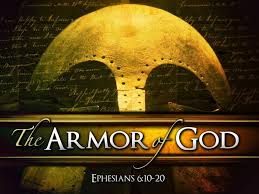Jesus is the Light
Last week, we asked, “Where’s the light?” The answer to that question is Jesus. Jesus is the Light of the world, in whom there is also life. Jesus’ light dispels the darkness that is so prevalent in our world: the deceitfulness of sin. Because of The Light, we have spiritual discernment and are able to see truth clearly in a world where there are no absolutes nor standards of integrity.
How is that possible? Through the transformation that begins when we became “new creatures in Christ” (2 Cor. 5:17). Each day, we become more like Christ—a light that is to shine in a darkened world.
Light transformation
In Ephesians 5:8, Paul explains the extraordinary transformation Christ makes in the life of His believers.
Paul accomplishes this by contrasting the believer’s old life with their new life. Paul borrows an example from nature that would be easily understood by his readers—light and darkness.
For you were once darkness, but now you are light in the Lord. Walk as children of light.
“For you were once darkness.” This statement of conclusion describes the state in which current saints found themselves before Christ. Darkness (skotos) described their past condition.
We were not “in darkness” but we actually “were darkness”. Metaphorically this describes individuals in whom “darkness becomes visible and holds them sway.” They are morally darkened by sin, spiritually bankrupt, and desperately in need of salvation (Rom. 3:23).
Who are you?
“But now you are light in the Lord.” What caused the change between “once darkness and now light”? Salvation! God’s plan of salvation provided a change in status—from darkness to light.
Light (phos) is used figuratively to describe truth and its knowledge, together with the spiritual purity (in contrast to vv. 3-5) associated with it. God took us (sinners) who were “foolish, disobedient, and deceived and according to His mercy, He saved them (us)” (Titus 3:3-5).
Life as a light bearer
“Walk as children of light.” As new creatures in Christ (2 Cor. 5:17), a new relationship emerged. No longer in fellowship with darkness, we became children and joint heirs with Christ (Rom. 8:17) with all its power (Ep. 1:19) and privilege (Ep. 2:6).
In addition, our lives were redirected to God’s purpose—to walk as children of light. As “light bearers” we now offer to the lost the same light we received when we walked in darkness. By hearing our personal witness and the Gospel, the darkened world will be attracted to The True Light, Jesus Christ (John 8:12; 9:15).
As you plan your daily activities remember to embrace your identity as children of light. Look for opportunities to “turn on the light” in dark places and “show others the goodness of God, for He also called you out of the darkness into his wonderful light” (1 Peter 2:9, NLT).




